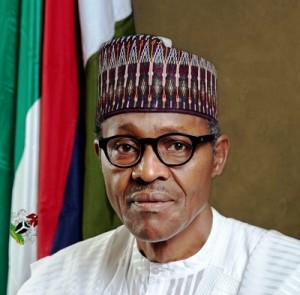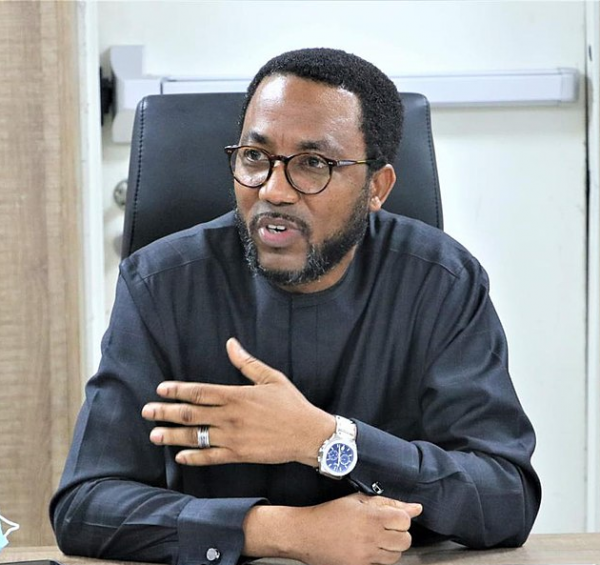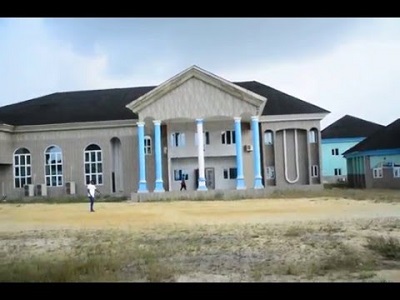Leadership: Change In Buharistic ‘Go Slow’

Today, many people are excited about the “change” mantra that brought President Mohammed Buhari to power, but I am excited because Buhari is the first true President of this nation. Whether under the nomenclature of “Head of State”, he is the first president who earnestly sought for power, believing he could do it and got it. All the nation’s past Presidents or Heads of State were accidental leaders, who filled the gaps circumstantially for one reason or the other. I plead to suspend this explanation for another day. But it is on this plank, that many Nigerians and international observers are surprised at the delay to action, which has earned him a sobriquet, “Baba Go Slow”. It is expected that for a man who had been the Head of State for almost two years and contested for presidency four times, he should have hit the ground running almost immediately after inauguration given that he understands the problems and have the soothing balms. This is not to be.
However, the argument that he needs to take his time before taking a step because of the level of decay sounds plausible. But, when was there not a decay or corruption in Nigeria’s leadership system? If we say that the past leaders were good, why were there successive coup d’état, with each group alleging corruption and insecurity as the key reasons for intervention? Were there motivated by quest for power? No. Why then is there Ibrahim Babagida’s oil windfall scandal of about N4 billion? Why the Halliburton scandal? Why the scandalous billions spent on NEPA under President Olusegun Obasanjo?
Agreed, Buhari’s leadership strategy may differ, our prayer is that the concept of change should not snowball into continuity, which Nigerians, by popular votes never wanted.
From campaign ground to presidency, Buhari has not unveiled his economic agenda. Does he want to mark his first 100 days with preparation for war?
It is seemingly obvious that Buhari and his team are economically clueless. God forbid! His inaugural speech was evident. No plan or strategy on how to put food on tables of Nigerians. We pray it will not be another wombling and fumbling leadership journey. Jonathan wombled and fumbled with goodluck, Buhari has only “change” beside him, no luck!
And so we earnestly seek a change in cost of governance in Nigeria.
A revelation on the comparative cost of benefits for National Assembly members, especially senators, globally is mind-boggling, if it is anything to go by.
An annual salary for a Senator in Nigeria is N354million, big enough to set up a factory capable of taking off the street between 30 and 40 unemployed Nigerians whose dependants can feed from satisfactorily. Now, multiply this by 109 Senators, what do you get?
Some Small and Medium Enterprises (SMEs) in Nigeria only seek between N20 and N50 million to sustain their productivity. All they get is excuses, even with their workforce and contribution to the Gross Domestic Product (GDP). What is the value of one Senator to the nation’s GDP? Some of these Senators have nothing upstairs, and some end up not impacting their constituency, and country. Surprisingly, some of them lack knowledge of their position.
Please, read this revelation that is trending in the social media, on how much a Nigerian Senator makes every month(N29,479,749.00) for sleeping sometimes in the hallowed chambers. Why won’t people kill to become a Senator or be a political office holder.
SENATOR’S PAY WORLDWIDE PER ANNUM
* Bangladesh – $4,000.00
* SriLanka – $5,100.00
* India – $11,200.00
* Malaysia – $25,300.00
* Thailand – $43,800.00
* Spain – $43,900.00
* Ghana – $46,500.00
* SaudiArabia – $64,000.00
* Indonesia – $65,800.00
* Kenya – $74,500.00
* France – $85,900.00
* Sweden – $99 300.00
* SouthAfrica – $104,000.00
* Britain – $105,400.00
* NewZealand – $112,500.00
* Israel – $114,800.00
* Germany – $119,500.00
* Ireland – $120,400.00
* HongKong – $130,700.00
* Japan – $149,700.00
* Canada – $154 000.00
* Singapore – $154,000.00
* Brazil – $157,600.00
* UnitedStates – $174,000.00
* Italy – $182,000.00
*Nigeria – $2,183,685.00
The details of the remuneration of an average Nigerian Senator is detailed below;
* Basic Salary (B.S) – N2,484,245.50
* Hardship Allowance (50% of B.S) – N1,242,122.70
* Constituency Allowance (200% of B.S) – N4,968,509.00
* Newspapers Allowance (50% of B.S) – N1,242,122.70
* Wardrobe Allowance (25% of B.S) – N621,061.37
* Recess Allowance (10% of B.S) – N248,424.55
* Accommodation (200% of B.S) – N4,968,509.00
* Utilities (30% of B.S) – N828,081.83
* Domestic Staff (70% of B.S) – N1,863,184.12
* Entertainment (30% of B.S) – N828,081.83
* Personal Assistants (25% of B.S) – N621,061.12
* Vehicle Maintenance Allowance (75% of B.S) – N1,863,184.12
* Leave Allowance (10% of B.S) – N248,424.55
* Severance Gratuity (300% of B.S) – N7,452,736.50
* Car Allowance (400% of B.S) – N9,936,982.00
* TOTAL MONTHLY SALARY = N29,479,749.00 ($181,974.00)
* TOTAL YEARLY SALARY = N29,479,749.00 x 12 = N353,756,988.00
The average salary of Nigerian worker based on the national minimum wage is N18,000.00, So,
the yearly salary is N18,000.00 x 12 = N216,000.00
Remember, Yearly Salary of Nigerian Senator = N353,756,988.00
Proportion: N353,756,988.00/N216,000.00 = 1,638
It will take an average Nigerian worker 1,638 years to earn the yearly salary of a Nigerian
Senator.
Buhari, give us this change, our heart desire, even in the maritime, oil and gas sectors. Amen!







